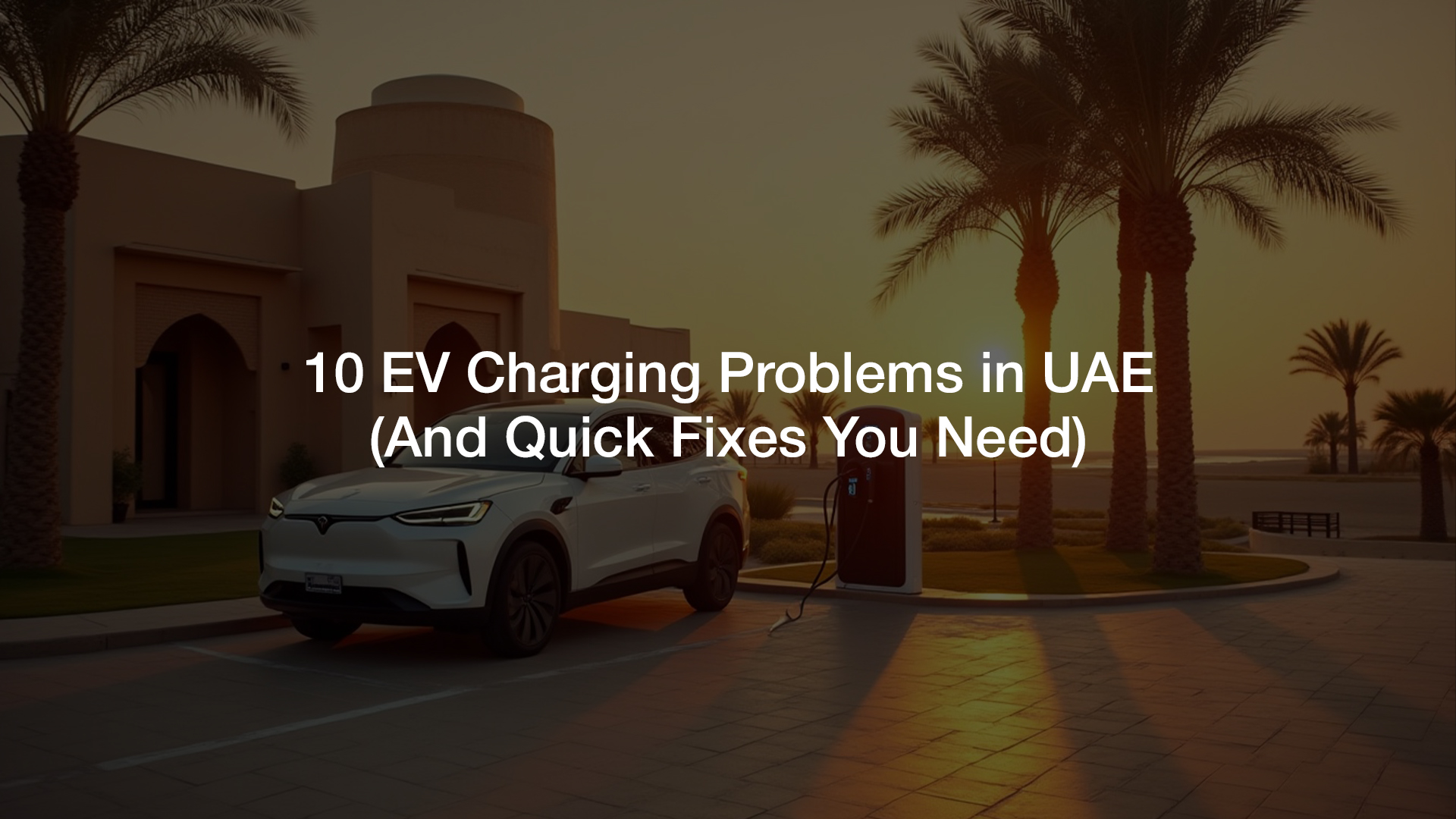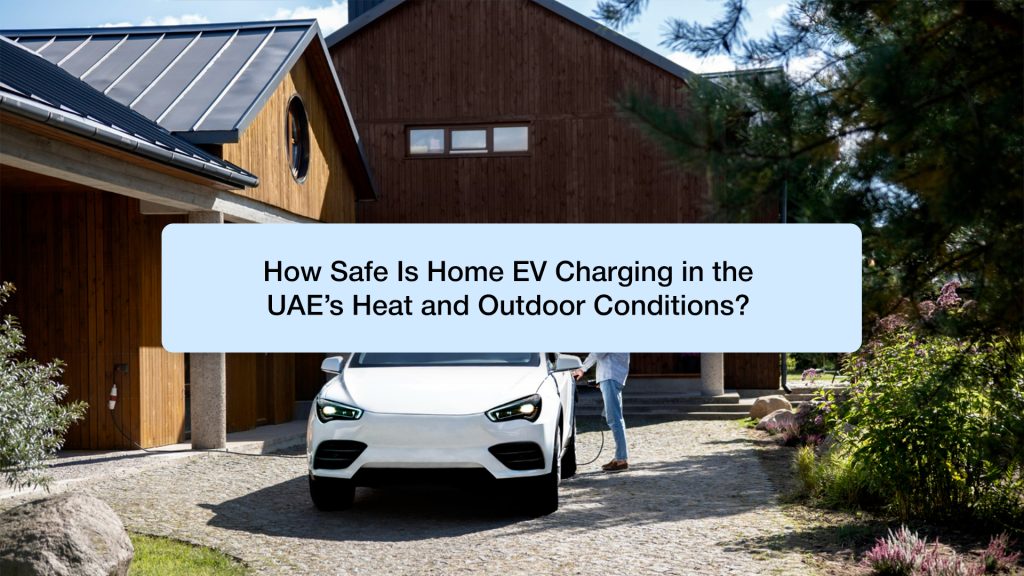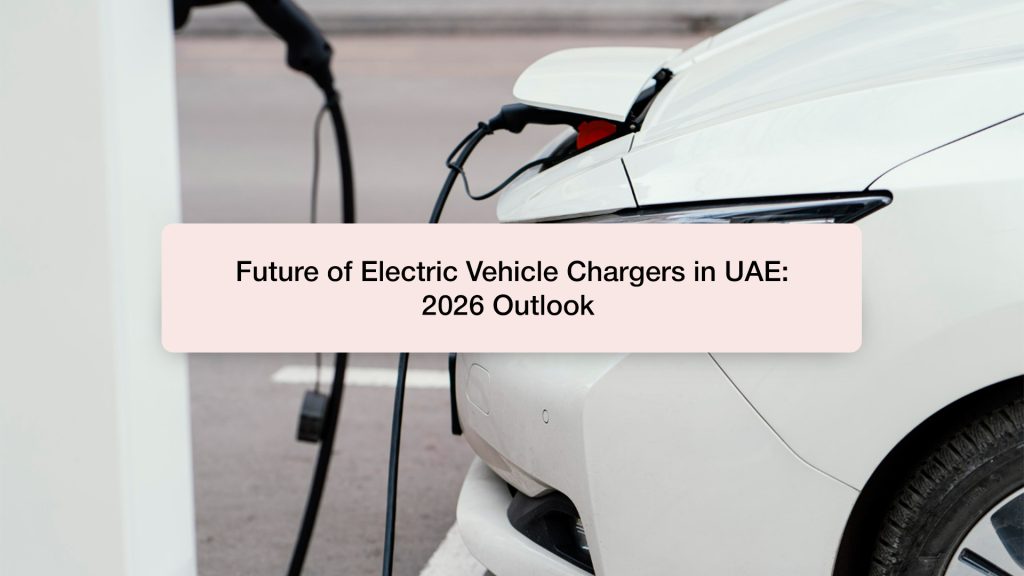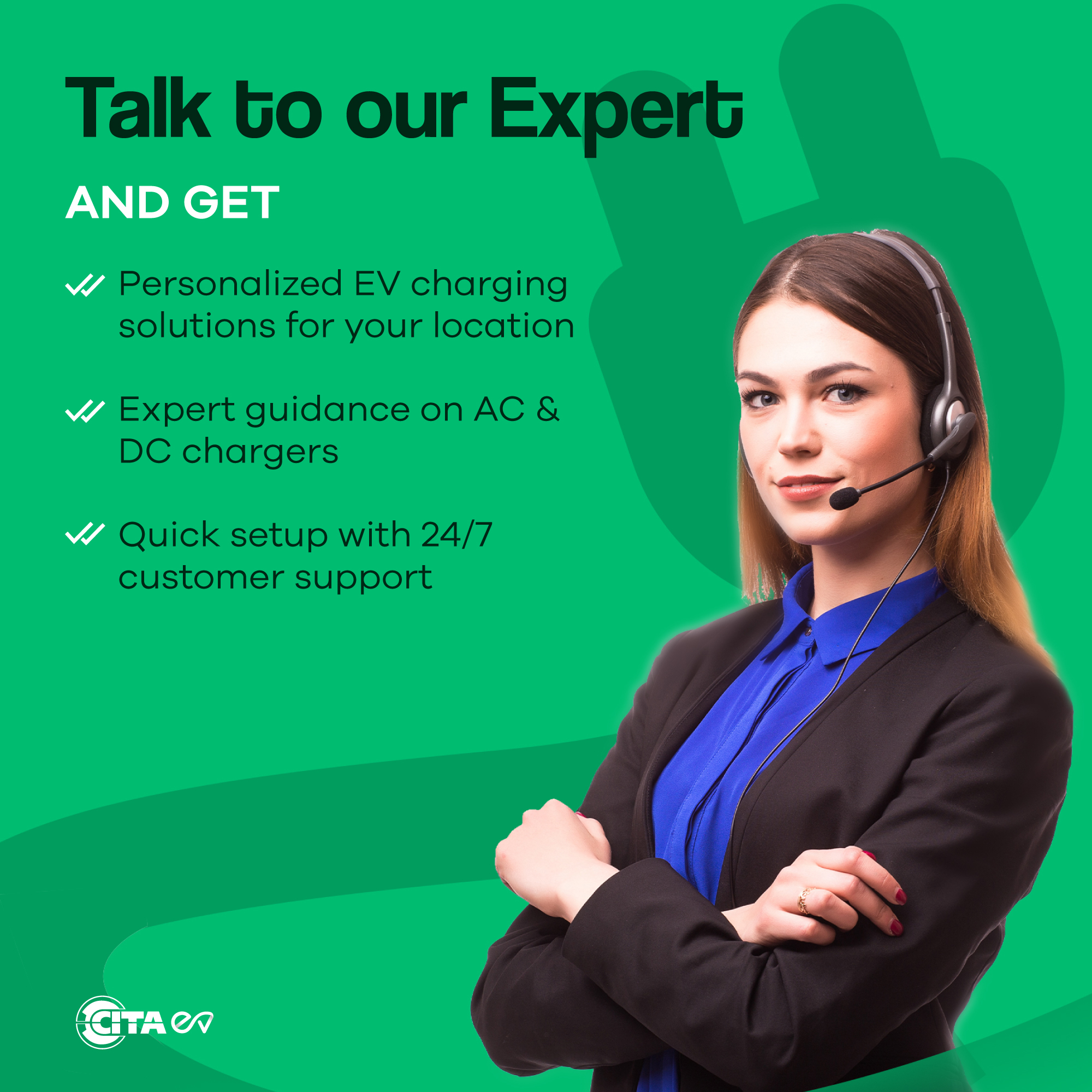Have you ever wondered why your EV charger speed matters more than you think?
In the UAE, where electric mobility is expanding at a record pace – with over 30,000 electric vehicles already on the road – charging speed is quickly becoming a deciding factor for both home and commercial EV owners.
With Dubai aiming for 42,000 public charging points by 2030, understanding how EV charger speed affects convenience, cost, and performance is now more important than ever.
Why EV Charger Speed Matters in the UAE
Let’s start with the basics. EV charger speed directly impacts how long it takes to power up your electric car. In simple terms, it’s the rate at which energy (in kilowatts) flows from your charger to your car’s battery.
In the UAE, where daily commutes can range from short city trips to long-distance drives between Emirates, choosing the right ev charger type is not about luxury – it’s about practicality. Whether you use a smart ev charger at home or rely on fast EV chargers at public stations, speed determines how easily you can keep your car ready for the road.
A home ac ev charger may take 4–8 hours to charge your EV fully, while a dc ev charger can do the same in under 30 minutes. That difference could shape your entire EV ownership experience.
Types of EV Chargers and How Fast They Charge
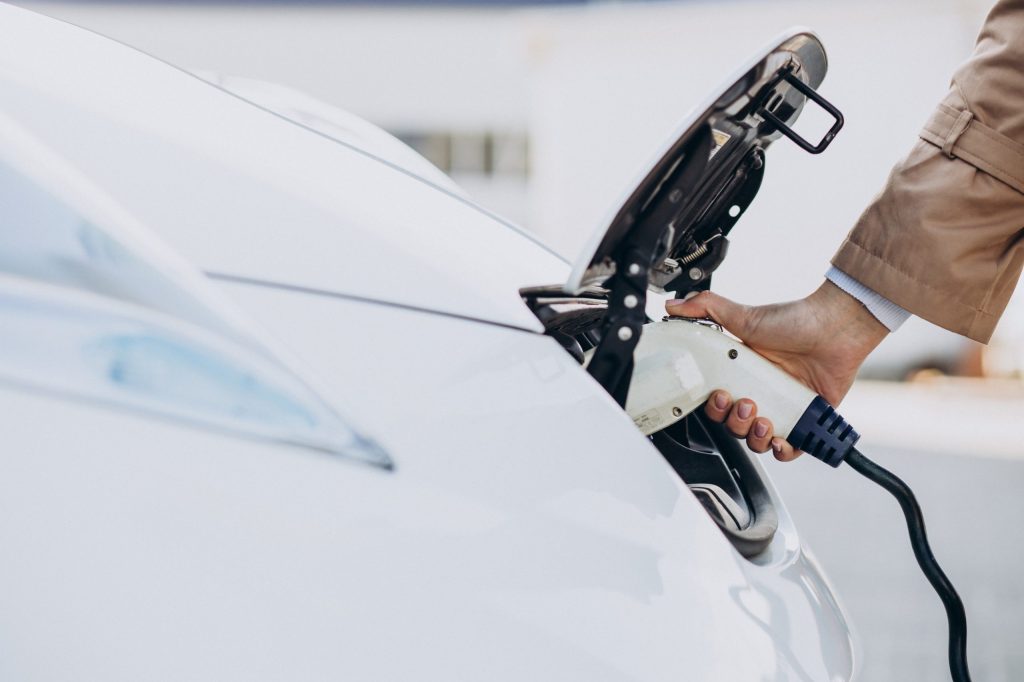
Understanding the types of EV chargers and their speeds is key to choosing the right solution for your home, workplace, or commercial setup.
Here’s a practical breakdown for everyday EV users.
AC Chargers – Reliable Everyday Charging
AC chargers are the most common choice for homes and workplaces. They provide steady, moderate-speed charging, making them perfect for overnight top-ups or during working hours.
AC chargers are compact, easy to install, and compatible with standard electrical setups.
They are ideal for daily commuting and routine charging needs, offering a balance of convenience, safety, and efficiency.
Dual AC Chargers – Charge Two Vehicles Simultaneously
For workplaces or shared parking areas where multiple EVs need charging, dual AC chargers are a smart solution. These units allow two vehicles to charge at the same time, efficiently managing available power.
Some manufacturers, such as CITA EV Charger, even offer 44 kW dual AC chargers with built-in load management systems to optimize energy distribution and minimize waiting times.
Dual EV chargers maximize space and reduce downtime, making them ideal for multi-user environments.
DC Fast Chargers – Rapid Charging for Busy Lifestyles
When speed is the priority, DC fast chargers deliver high-power charging directly to your vehicle, drastically cutting down charging time compared to AC chargers.
They are perfect for commercial hubs, highways, and fleet operations where quick turnaround is essential.
Some DC chargers can charge vehicles from low to high capacity in under 30 minutes, making them a practical choice for busy drivers. They are built to meet safety standards and withstand heavy usage, ensuring a reliable and fast charging experience.
How to Decide the Right EV Charger Speed for You
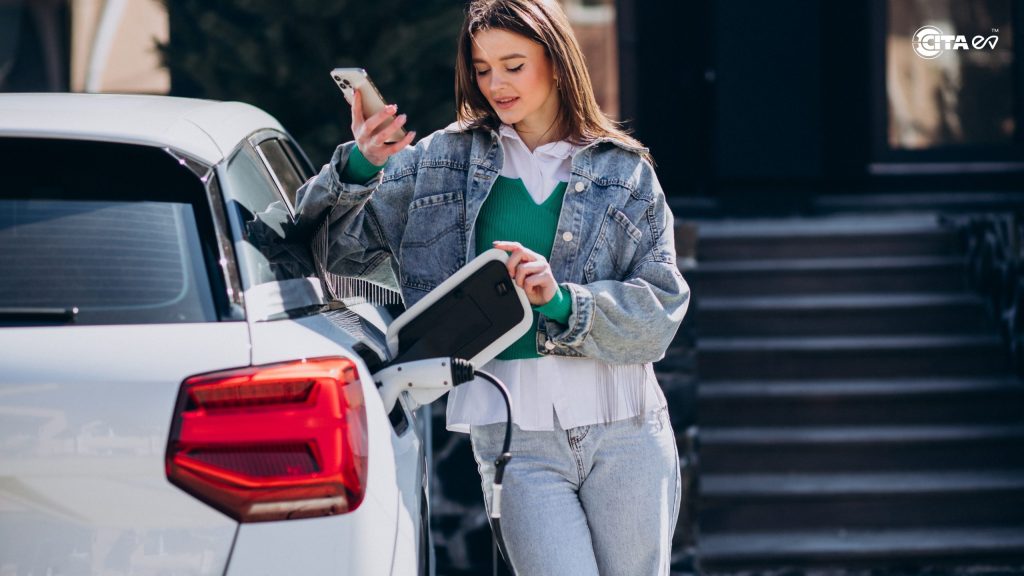
Choosing the right EV charger speed isn’t just about getting your car charged faster – it’s about matching your ev charger to your daily driving needs, home or workplace setup, and the type of EV you own. The right speed ensures efficiency, safety, and cost savings, so you can enjoy a seamless EV charging experience every day.
Below are the key points and reasons to help you make the best choice:
1) Know Your Car’s Onboard Charging Capacity
Your car’s onboard charger determines how much power it can accept.
Even if you install a 22kW ev charger, if your EV supports only 7.4kW, that’s your limit. Check your EV Charger manufacturer specs before purchasing.
2) Understand Your Daily Driving Range
If your daily commute is under 80 km, a 7kW AC EV charger will do just fine.
It can fully charge most EVs overnight.
But if you own a high-capacity EV like a Tesla Model Y or BYD Seal and cover long distances often, a 22kW or even dual 44kW electric car charger setup makes more sense.
3) Home vs. Commercial Use
For residential users, a single-port smart ev charger is enough.
For business owners or developers setting up shared parking stations, Fast EV Chargers or dual AC chargers (like CITA’s 44kW Dual AC model) allow multiple vehicles to charge simultaneously, saving both time and space.
4) Electrical Load and Installation
Faster EV charging requires stronger electrical infrastructure. In the UAE, working with an ev charger supplier or ev charger manufacturer in UAE ensures proper load management, DEWA compliance, and installation safety.
It’s not just about power; it’s about protecting your investment and your property.
5) Future-Proof Your Charging Setup
When choosing your EV charger speed, think about your future needs. As EV battery capacities grow and more powerful models enter the UAE market, having a slightly higher-capacity charger than you currently need can save you from costly upgrades later.
Investing in a 22kW AC, 44kW Dual AC, or even a DC Fast EV Charger today ensures your setup stays relevant for years to come.
AC vs. DC: Comparing the Real-World Charging Experience
| Type | Speed | Ideal For | Typical Charging Time | Example |
|---|---|---|---|---|
| AC EV Charger | 7 kW–22 kW | Homes, offices | 4–8 hours | CITA Smart 22 |
| DC Fast EV Charger | 60–360 kW | Public, fleets | 15–45 minutes | CITA Ultra Fast 180kW |
| Dual AC EV Charger | 44 kW | Shared parking | 2–3 hours for 2 EVs | CITA 44 Dual |
The difference between AC and DC ev chargers is like comparing home Wi-Fi speed to 5G mobile data. Both connect you, but one gets you there much faster. What you choose depends on how and where you drive.
Charge Smart, Charge Fast, Charge with CITA EV Chargers
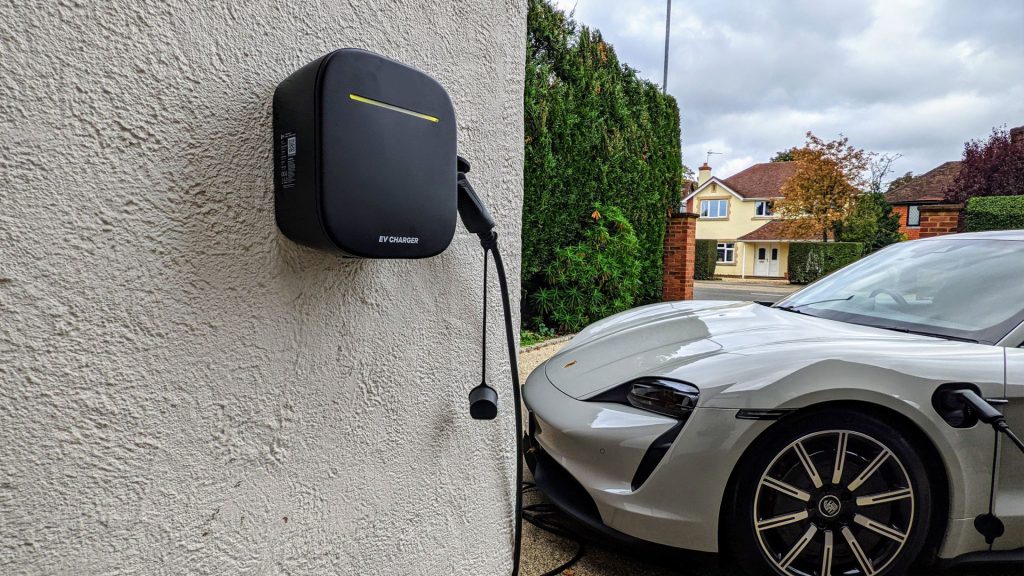
Here’s the thing – choosing the right EV charger speed isn’t about spending more; it’s about charging smarter. The right EV charger can save you hours, lower energy costs, and extend your battery’s life.
If you’re in the UAE, start by evaluating your driving habits, home power capacity, and the kind of vehicle you drive. From there, consult a Certified EV Charger in UAE supplier to match your needs.
And if you’re looking for reliability, consider the CITA EV Charger – where every ev charger is built to meet DEWA and ADQCC standards, offers IP-rated protection, and comes with extended warranty options. With both AC EV Chargers and DC Fast EV Chargers, plus smart management tools like the CITA EV App and CPMS, you’re not just charging your EV – you’re charging into the future.
Ready to power your EV the right way?
Explore CITA’s ev charging solutions and discover the perfect electric car charger built for the UAE’s smart mobility era.



